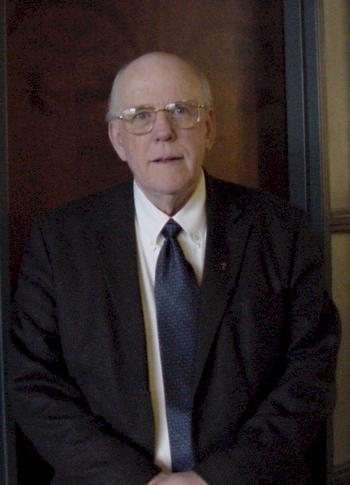Sidney Griffith
Sidney H. Griffith is Ordinary Professor Emeritus in the Department of Semitic and Egyptian Languages and Literatures in the School of Arts and Sciences at the Catholic University of America, where under the direction of Professor Richard M. Frank he earned the Ph.D. in 1977 with a thesis entitled, “The Controversial Theology of Theodore Abū Qurrah (c.750-c.820 AD): A Methodological, Comparative Study in Christian Arabic Literature.” His areas of interest and academic responsibility are Syriac Patristics, Christian Arabic Literature, and the history of Christian/Muslim relations, especially within the World of Islam and in the Early Islamic period. In addition to numerous articles in his areas of interest, his publications include: The Beginnings of Christian Theology in Arabic: Muslim-Christian Encounters in the Early Islamic Period (2002); Yayā ibn ‘Adī, The Reformation of Morals: A Parallel Arabic-English Edition (2002); The Church in the Shadow of the Mosque: Christians and Muslims in the World of Islam (2008); The Bible in Arabic: The Scriptures of the ‘People of the Book’ in the Language of Islam (2013). His most recent research interest focuses on Late Antique Christology in Qur’ānic perspective, Christian/Muslim exchanges in thirteenth and fourteenth century Cairo.
The Intellectuals of Tenth Century Baghdad: Jews, Christians, Muslims
By the turn of the ninth century CE, Baghdad, founded some forty years earlier as the capital city of the Abbasid Caliphs, had become a flourishing cosmopolitan metropolis. Jewish, Christian, and Muslim scholars from all over the Arabic-speaking world flourished there for a time in a scholarly convivencia unmatched anywhere else in the World of Islam, unless it be Cairo in the thirteenth century. The high point of intellectual fame was achieved in the tenth century, the era of Saadia Gaon, Yayā ibn ‘Adī, and Alfarabi, not to mention the flowering of ᶜilm al-kalām in all three communities.
Through careful reading of primary and secondary texts, the purpose of this course is to highlight the understudied interaction of scholars from the several communities in their philosophical and religious pursuit of knowledge and the ways of humane conduct in the de facto religiously plural society of Abbasid Baghdad. Beginning with a review of the intellectual riches infused into Arabic scholarly circles through the translation movements of the ninth century, the course focuses its attention on the works and topics that occupied the major Jewish, Christian, and Muslim ᶜulamā’ of the tenth century, finally extending the view into the work of their successors up to the middle of the eleventh century CE.
